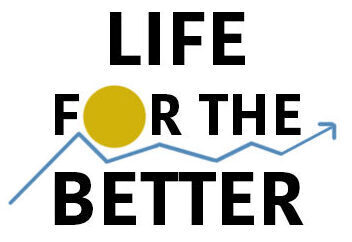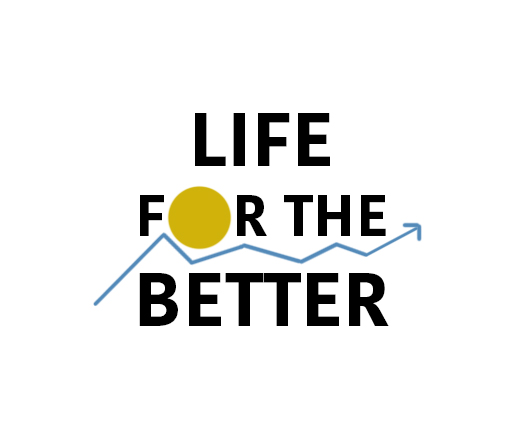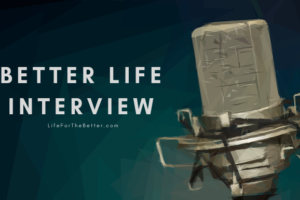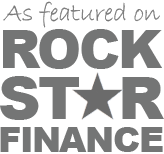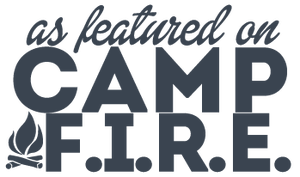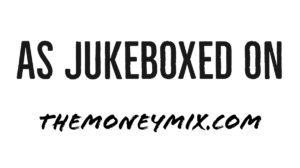There are millions amongst us who dream of achieving Financial Independence and retiring early from their work, however only a select few are actually able to put in their efforts to accomplish the goal. The majority however never takes action and that is why there are several who consider it simply a myth.
For those who don’t know what financial independence is, it is the state of your financial well-being where your yearly expenses are under your control and paid for due to the amount of income that you generate based on the mix of assets that you own as well as stocks, bonds, and other investments.
The widely accepted 4% rule states that when you achieve a 75% saving rate of your generated income, within 10 years of actual work you can save up to 25 years of living expenses.
However, our main goal here is not to guide you about how you should start investing and aggressively saving your expenses, instead we would like to share with you some great skills that you should master that can help you achieve financial independence. So without any further a due, let’s take a look at these 9 ways that can accentuate your skills while on a job and pursue the goal to achieve financial independence.
Managing Your Expenses
Following a set lifestyle for yourself also incurs various expenses that include your daily use items, consumable goods, food, utilities (gas, electricity, water), commuting & traveling cost, toiletries, clothing, and the list goes on. The essence lies in reducing the total amount to the bare minimum as possible which requires you to look for alternatives, better solutions, and various other means of cost reductions that can effectively help you lower your expenses.
To some extent, you can also apply an inventory management system to the good and services that you use to make sure that they are not wasted and used in an optimized manner. This relates to your spending directly and that is why as an individual you should keep a track of where most of your money is spent and how you can improve you’re spending and reduce the strain it implies on your finances and funds. Fixed and variable expenses are different in nature and thus should be treated as such.
Mastering the Art of Saving
Linked closely to our first tip, is how you should actively practice the art of saving. This might include you actively setting yearly financial goals for your own self which you have to see through. However, for beginners here is what you must do:
- Studying your own habits as a consumer and removing some of them gradually which are considered unnecessary without causing any changes to your current lifestyle.
- Investigating for best prices, coupon offers, and great discounts from various shops and service providers using the internet to research your buying options.
- Setting principles for your health and physical well-being can also help you cut down on unhealthy and compulsive behavior, which will evidently save you a lot of trouble in the long-run.
- Find out how you can save money through insurance policies including health, home, vehicle, and other utensils. Compare them and consider switching if it works for the better.
- Review your long-term goals or set one if you haven’t any. Always think ahead and prepare yourself for the future.
- Set goals and objectives, plan out your strategy to save money every day, week, month, and year to seek growth in your total savings. A journey of 1000 miles begins with a single step forward.
Paying Off Your Debts
While it is clear that nobody likes to be in debt, nevertheless paying your debts is probably the most satisfying feeling you can have, which is why many of us need help in managing them properly. Around 80% of all Americans face some sort of debt with the majority of them facing student loan debts and credit card debts. It is all about how you handle them and keep a healthy paying cycle running until they are completely paid off.
Try paying at least a minimum amount as soon as your finances allow you to do so. You should know that all debts are time-sensitive, and the longer they linger on the more trouble you are asking for. This is why you should start aligning them in order and see which one is the most expensive for you. Start with the one that is costing you more in the long run.
Another strategy is to pay more than your minimum amount which will inflict a considerable dent on your debt as well as help you to stop it from being prolonged too much. You can also direct your work bonuses to pay off your debt rather than spending them on vacations or luxury items. At the least you could also hold a garage sale for unsolicited items you have acquired over the years, this may include some gifts that you never wanted.
Knowing Your Investment Options
While there are many opinions that are commonly shared amongst the community we would like you to go through some unpopular notions that exist for personal finance. This will open your mind to the differentiated thoughts that people have about various investment opportunities. However, it should be reasonable to say that you should know your investment options at the least to plan and create a strategy for them. They include:
- Annuities
- Bank Bonuses
- Cash Value Life Insurance
- Certificate of Deposit
- Credit Card Rewards
- Dividend Paying Stocks
- Money Market Funds
- Municipal Bonds
- Online Checking Account
- Preferred Stocks
- Savings Account
- & TIPS (Treasury Inflation Protected Securities)
Smartly Handling Your Credit
Perhaps one of the greatest conveniences can also be one of your worst fears, which is why you need to act smart when using credit. For starters, you should know your FICO credit score to determine interest rates you will end up with. Closing your accounts is not for the best since there are times when you are rewarded if credit is made available to you and you don’t end up using it. It is all about you keeping a check on yourself so as to not overspend.
The best decision, however, does include closing accounts that do charge you high-interest fees and rates that are downright unreasonable. Seek out ways to improve your debt to credit ratio through timely payments. Keep a track of your credit card statement and learn the mechanics that govern the reward system for each credit card account that you have. Your portfolio should focus and center on those accounts that maximize your overall rewards and eligibility to receive benefits against specific kinds of spending.
Take Heed of Early Retirement Plans
Since the start of our discussion to this point, our entire aim has been to set you up for an early retirement, but offering you a holistic approach was a greater priority to set things right for you. Making you understand how to manage your finances is an important step that every mature adult should strive for. However, if nothing works for you then there are other ways to ensure that your golden years are not spent in the office working your soul to the grave. Here are some options that you should learn more about:
- Individual Retirement Plans
-
- Registered Retirement Income Funds
- Roth variations for IRAs (Individual Retirement Accounts) & 401(k)s
- Unsheltered Savings
Nurturing Multiple Revenue Streams
It is like they say “don’t put all your eggs in one basket”. Being dependent on a single source of income naturally puts you into a lot of risks. This might become unbearable if god forbids something terrible happens, which brings us to our second popular saying “always hope for the best but prepare for the worst”. As a young and aspiring individual, you should always seek out to diversify your income stream and try your level best to cultivate a multitude of them.
There are many ways for you to identify them and create for yourself to earn and induce passive incomes such as affiliate marketing, social media ventures, index funds, personal talents, photography, home-made products, part-time or contract based works, real state, online blogging, professional counseling, and offering online services.
Building Assets That Pay You In The Long Run
Perhaps one of the best quotes I recently came across is from the American Essayist, Ralph Waldo Emerson, who once stated: “What lies behind us and what lies before us are small matters compared to what lies within us.” This goes to show that there are much openings and prospects within each and every one of us that are still lying untapped and unused. The movement to buildup on your assets is also similar to exploiting these untouched aspects that can help you generate the benefits you seek in your life. Here are some options for you to explore:
- Debentures
- Franchises
- Interest Paying Bonds
- Information Products (E-books, Podcasts, Webinars etc.)
- Peer to Peer Lending
- Royalties
- Short Term & Vacation Rentals
- Subleasing parking spots, spare rooms, storage areas
- Websites
Essential Aptitudes for Self-Improvements
Now that we are finally close to the ending of our post we would like to inform you that financial independence is not something for everyone. There are some certain life skills which a person must have or depict in order to reach their ultimate goals and objectives. These include:
- Learning: if you are not willing to acquire new information that can markedly improve your overall pool of knowledge about the world around you and how it works, then that fixed mindset would become your biggest hurdle.
- Independence: this is what defines a person who is willing to do things by their own self. Being dependent on others is literarily unbearable for them. This quality often shows in the little things we do like: cooking your own meals, fixing your own plumbing, and other DIY ways to stop calling for help.
- Creativity & Problem Solving: a person needs to have the ability to think outside of the box, look and perceive things in different and variable ways. Generate new ideas, and be able to think about them using different approaches.
We hope this post was able to offer you some insights as to how you can propel yourself towards financial independence while working on a job. Always remember that dreams come true if you work to attain them, building castles in the air has never brought any of them to manifest in the real world. Work on your plan of action today in a committed and dedicated manner. The more serious you are about it that sooner you will be able to realize the bigger picture ahead.
For more opinion and suggestions based on the topic, please let us know in the comment section below.
Author Bio: Beau Henderson is the founder and Financial Planner of RichLife Advisors. His approach to retirement planning is a holistic one that has much more to do with you living a Rich life than your money. Beau’s main office is located in Gainesville, GA but you can find him online at https://www.richlifeadvisors.com/
